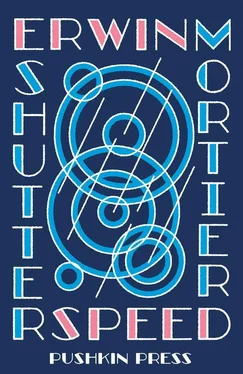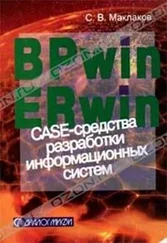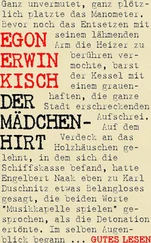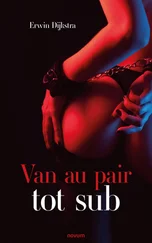‘I’ll ask them …’ I said.
She stood up and adjusted the strap of her shoulder bag.
‘They already know. You deserve a good school, that’s what they said.’
I did not react.
She cupped my face with her hands. ‘I’ve missed you, Joris. I’ve really missed you.’
I shut my eyes to avoid meeting hers.
Her lips brushed my forehead, then she was gone.
I heard her going down the stairs. Later on, when they were leaving, I looked out of my window and saw her in the churchyard. She was standing by my father’s grave, clutching her shoulder bag, unsteady on her high heels in the coarse gravel.
Her brother was waiting with the engine running.
‘Francine,’ he called.
She picked her way daintily to the kerb and got in the car.
The dark was setting in and Aunt was in the kitchen finishing the washing-up. Uncle was outside feeding the chickens.
I posted myself in the doorway and stared at her blankly. When it came to getting on her nerves I knew every trick in the book.
The dishcloth flew faster and faster over the pans, as I was pleased to note. She slammed the doors of the kitchen cupboards. She took the already washed tureen and rinsed it again by mistake.
Then she flung the sponge in the sink and turned to confront me.
‘Joris! What’s the matter with you?’
I shrugged and pulled a face. ‘So I’m supposed to be leaving then, am I?’
‘Leaving, leaving, who told you that? She wants you to be with her during the week, so you can go to school there. That’s all.’
She returned to her pans.
‘Well, perhaps it’s time to move on …’
‘I want to stay here.’
‘It’s not up to you.’
She paused in her scouring, took a deep breath and fixed her eyes on the cupboard door over the draining board.
‘Whichever way you look at it, she’s still your ma, Joris. We can’t stop her. But it’s early days yet, plenty of time for you to get used to the idea …’
She set the pan on the drying-rack.
‘And us too.’
‘I’m going up to bed,’ I said.
She offered her cheek for me to kiss her good-night, but I stalked out of the kitchen.
The next morning I woke up late. I had slept soundly, and was not conscious of having dreamed. Last night before getting into bed I had closed the lid on my father’s suitcase and slid it back where it belonged.
From my bed I surveyed my room. I willed each crack meandering across the ceiling to imprint itself on my memory, so that when I was packed off to that stuffy town house just shutting my eyes would be enough to whisk me back to the comfort of my old bedroom.
Aunt called from downstairs. She asked me to put something clean on because she was taking me to Hélène Vuylsteke’s for coffee at the big house. I could go out and play in the grounds if I liked, she said, no lack of space there.
She sent me back upstairs twice, the first time because the jumper I was wearing was too tight and the second because it was too loose.
We set out a little after midday, and were to call at Miss van Vooren’s on the way, as she had also been invited.
Despite the overgrown cedars screening the walls of her house, Miss van Vooren had not been spared the heat. She opened the front door looking rather flustered, shook hands with Aunt and glared at me as if I were some small dead rodent the cat had deposited on the doorstep.
‘Could you wait a moment,’ she said. ‘I still have to do my hair, and I need to take something for my ulcer before we go.’
We were not shown into the parlour, where she usually kept me waiting while she composed her list of groceries, but into a rarely used antechamber on the opposite side of the hall. When Aunt sat down, the springs of her chair squealed as though in fright.
On the mantelpiece stood dreary little bunches of dried flowers between framed photographs of prim young ladies in front of churches, basilicas, and every Virgin’s grotto in the area. They were invariably disposed around the central figure of Miss van Vooren, who wore a look of permanent migraine and sometimes linked arms with Hélène.
‘I must be up there somewhere too, with all the rest,’ said Aunt.
A musty odour hung in the room. The walls were obviously affected by rising damp, which the seldom-lit stove did nothing to combat.
‘God, what a pong in here!’ I said, in a much louder voice than usual. Miss van Vooren had left the door to the hall ajar. Elsewhere in the house she turned a tap on. Secretly I hoped she had heard me. The incident in the sacristy was still fresh in my memory.
‘Joris!’ Aunt remonstrated, holding her forefinger to her lips.
‘Well, you said so yourself! She may be pure in spirit, but her cupboards could do with a dusting … that’s what you said — I heard you.’
‘That’s quite enough …’
‘Even Uncle says so. Smells as musty in her house as between a nun’s legs, he says.’
Aunt stood up, grabbed me by my arm and sat me down on the chair beside her.
‘What’s the matter with you today? I’ll send you straight home if you don’t mind your tongue.’
I was fuming.
Just as I opened my mouth for an even ruder rejoinder, Miss van Vooren appeared in the hallway. With her dark glasses on and a filmy little headscarf reining in her swollen hairdo except for a curl on either side, she looked more or less her old self. All she needed was a pair of glass wings for her to look exactly like an insect whose frail appearance belied a nasty sting.
‘All set now,’ she said.
Aunt and I stood up and followed her out of the house.
We walked up the tree-lined alleyway to the back entrance of the estate. Miss van Vooren had no objection. The main access was on the other side: a formal gateway with posts of classical design crowned by urns and horns of plenty, the aesthetic effect of which Miss van Vooren considered wasted on ordinary folk.
With each step we took in the knee-high grass between the lindens, the throbbing activity of the village dwindled away behind the banks of brushwood curving around the estate like defensive earthworks. The afternoon took on a compacted stillness, rent now and then by the shrieks of peacocks in the trees.
Before us sprawled the big house, bathed in sunshine. The awning had been erected over the terrace. We shut the gate behind us, and as we crossed the footbridge a figure in a wide-brimmed straw hat came down the steps towards us.
‘Welcome, all three of you!’ exclaimed Hélène Vuylsteke. ‘How nice to see you, Rosa.’
Kisses were exchanged.
‘And our celestial acrobat too …’ she smirked.
‘The talk of the village, he is,’ Miss van Vooren said offhandedly.
‘Oh come now, Rosa,’ laughed Hélène Vuylsteke. ‘Nous deux, nous avons survécu deux guerres. After what we’ve been through, that kind of upset is a mere bagatelle.’
Miss van Vooren’s eyebrow raised itself over the rim of her sunglasses.
Hélène ushered us up the steps.
‘Monsieur said we were free to use the terrace. Enjoy the fine weather, he said, because you never know how long it will last. Especially at his age. Après la pluie vient la pluie — that’s what he says nowadays.’
On the terrace beneath the awning stood a table laden with a mass of china and silver; the sight of it caused Aunt to catch her breath. The girl was sitting a little way along, playing with her dolls. She had laid her own table, much lower than the other and surrounded by all her favourites propped on miniature wicker chairs. Halfway down the plastic ears of the largest of her dolls, a fair-haired beauty in a satin dress, sat the crown which the clairvoyant had presented to her at the circus.
‘Isabeau, nos invités sont arrivés,’ said Hélène Vuylsteke.
Читать дальше












